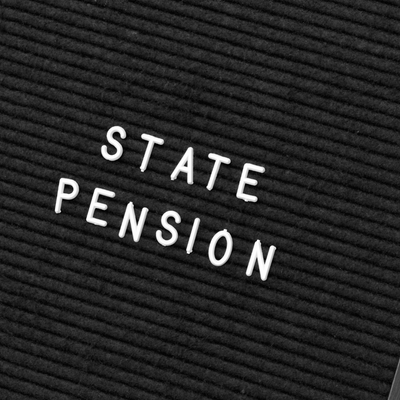
State Pension explained: what is it and how does it work
What is the state pension?
The State Pension is a regular payment that will be paid to you once you have reached the State Pension age assuming that you meet the minimum requirements. The amount that you will receive is based on the National Insurance contributions that you have made.
Your State Pension age can be found by using this calculator. It's currently between age 66 and 68 but is reviewed regularly and may be subject to change. Your State Pension age may be different to that on other pension plans that you hold.
The information provided in this guide relates to the new State Pension which came into effect in 2016. Men born after 5/4/1951 and women born after 5/4/1953 will claim the new State Pension.
How does my state pension build up?
Throughout your life, you will pay National Insurance contributions if you are working. Credit contributions will be made on your behalf if you are in receipt of qualifying State Benefits. Voluntary contributions are also an option.
For each year that you contribute (assuming that the qualifying amount was paid) you will build up State Pension entitlement. You'll usually need a minimum of 10 years contributions to receive a State Pension, and you'll need 35 years of contributions to receive the maximum State Pension.
If you have saved into other pensions, these do not effect your eligibility for a State Pension.

How much is the state pension?
For the 2025/26 tax year the full State Pension is £230.25 per week, this equates to £11,970 per annum. This will be paid every 4 weeks in arrears.
If you do not have 35 years of contributions the amount you receive will be less than this. You can check how much State Pension you have accrued and your income forecast here.
Depending on your overall level of income, you may have to pay Income Tax on your State Pension. More information about the taxation of pensions can be found on the government website.
How to maximise your state pension?
It is worth checking your National Insurance record to see if there are any gaps. These gaps could be years when you have paid no National Insurance, or years when you've paid less than the qualifying amount.
One option is to make up the gaps to try to increase the amount of State Pension you will receive. It's worth noting that voluntary contributions do not always increase your State Pension so it should be considered carefully. A Financial Adviser will help you understand this or you can contact the Future Pension Centre for help.
Once you reach State Pension age you may also have the option to defer the receipt of your State Pension. Deferring your pension will increase the amount you receive when you begin claiming. Again this needs careful consideration to see if it is worthwhile for you as there are other consequences such as to taxation to think about.
How to claim state pension?
People tend to assume that you will automatically begin receiving State Pension when they reach the relevant age. This does not happen and it is something that you do need to claim.
The claims process is straightforward and you usually get sent a letter around 2 months before your State Pension age that tells you what to do.
Once you have claimed successfully, your first payment will be within 5 weeks of reaching State Pension age.
Will my state pension increase?
The State pension will increase annually and you'll often hear this increase referred to as the 'triple lock'. What this means is that the increase will be the higher of:
- UK average earnings
- UK inflation (CPI)
- 5%
The point of the triple lock is to ensure that your pension increases annually and doesn't lose value due to the impact of inflation. It helps you to maintain your spending power.
The 2023 increase was 10.1%, and this remained high in 2024 with an increase of 8.5%.

What is Pension Credit?
Once you reach State Pension age, you may be entitled to additional Pension Credit if your income is low. This Pension Credit translate to additional income separate to your State Pension.
Qualifying for Pension Credit may mean you are also eligible for other benefits and support.
You can find out more about your Pension Credit eligibility here.
State pension as part of your retirement plan?
It's fair to say that relying on State Pension alone for retirement is unlikely to provide you with sufficient income for your needs. Most of us need to contribute to other pensions or have other assets to help us live the life we want after our working lives have ended.
Though it's never too late to start retirement planning, the sooner you start the easier it will be to build the income you will need. It comes down to having a plan and continually reviewing that plan to check your progress towards your goal.
View our Pension & Retirement Planning services
For more help and advice or to receive a complimentary guide covering wealth management, retirement planning or Inheritance Tax planning, contact Yorkshire Financial Planning on 01482 275540 or complete our contact form here.
The value of an investment with St. James's Place will be directly linked to the performance of the funds you select, and the value can therefore go down as well as up. You may get back less than you invested.
The levels and bases of taxation and reliefs from taxation can change at any time. The value of any tax relief generally depends on individual circumstances.

